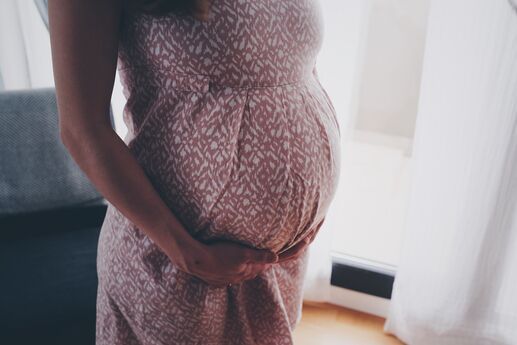Stress-Free Pregnancy Tips
Having a baby is incredibly exciting -- but can also be stressful at times. Between preparing for your baby, arranging the nursery, scheduling checkups, and dealing with your changing body, you've got a lot to handle! The following tactics can help keep anxieties at bay, which will help you -- and your new baby -- stay happy and healthy.
Stress-free pregnancy tip #1: Get moving. Exercise not only maintains fitness -- it also releases tension. Swimming and walking are great, low impact choices for workouts, and deep-breathing exercise such as in prenatal yoga can be extra soothing. Just be sure to ask your doctor before starting a new physical activity.
Stress-free pregnancy tip #2: Snack wisely. We all know that whatever you eat during pregnancy, your new baby eats, too. But there’s another reason to be mindful when you chow down: A well-balanced diet will help provide the physical and mental energy to help your body power through the pregnancy while keeping you focused.
Stress-free pregnancy tip #3: Catch some Z’s. There’s a reason getting extra sleep is the pregnancy tip that you hear over and over again. While your body is working overtime, you and your baby need all the rest you can get. Getting to bed early means you’ll snooze enough to keep your calm the next day. Check your temperature regularly with a touch free infrared thermometer.
Stress-free pregnancy tip #4: Just relax. Whether you curl up with a good book, meditate, or enjoy a warm bath, make sure you fit in some calming activities. Once you welcome your baby home, it’ll be tough to find the time for these!
Stress-free pregnancy tip #5: Avoid information overload. Taking a pregnancy education class is crucial for knowing what to expect when you’re having a baby. However, it’s easy to get caught up listening to other people’s horror stories and spending hours on the Internet reading about what could (but probably won’t) go wrong. Instead of delving into the gloomy, pay attention to your own body and look to your doctor for reassurance and advice.
Preparing for a baby can be a lot of work, so don’t hesitate to ask someone for help, to take some pressure off you. A happy, healthy mom-to-be is part of the secret to a happy, healthy pregnancy!
Photo by Ömürden Cengiz on Unsplash






